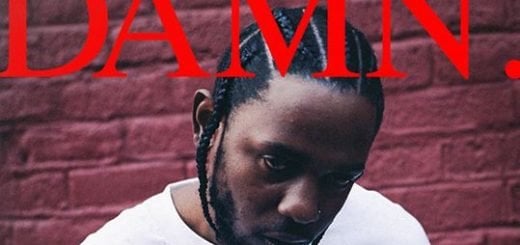U2’s “Pride (In the Name of Love)” Lyrics Meaning
“Pride (In the Name of Love)” is U2’s shoutout to all the nonviolent human rights’ activists in history who put their lives on the line in the name of that cause. More specifically, the song was inspired by and is based on the life of Martin Luther King Jr.
“Pride” was originally conceptualized as a diss song against US President Ronald Reagan (1981-1989). However, Bono instead decided to focus on historical figures who he deemed to be more enlightening, such as the aforementioned Martin Luther King and Jesus Christ.
As such the track seemingly begins with a reference to martyrdom, contrasting the life of a peacemaker to that of one who wants to “overthrow”. It is in the second verse where we find the reference to Jesus when Bono states that one of the people he is referring to was “betrayed with a kiss”. And in the third verse Martin Luther King explicitly enters the song as it mentions “April 4”, 1968 and the city of “Memphis”, Tennessee, which is the date and location of MLK’s assassination.
It is also at the conclusion of the third verse where we are treated to the idea upon which the main title of this track is derived from. In other words, Bono states that whereas Martin Luther King Jr.’s life was taken, the people who murdered him “could not take (his) pride”. In other words, U2 is praising individuals whose sense of pride – particularly in regards to helping their fellow man – is so strong that it actually supersedes their mortal lives.
Chorus
Meanwhile it is in the chorus that we become privy to the main meaning of the subtitle. U2 are basically asking what more can a man give than his very life “in the name of love”. This is the part of the song that most-explicitly serves as a shoutout to martyrs and people who selflessly put their lives on the line for a good cause – or more specifically “in the name of love”.

Facts about “Pride (In the Name of Love)”
- “Pride (In the Name of Love)” was released in September 1984. The song came out as the lead single from the band’s fourth studio album. That album is entitled The Unforgettable Fire. This classic is also the 2nd track on the album. Furthermore, this classic also appears on a number of compilation albums of U2. They comprise albums such as The Best of 1980-1990 (of 1998) and U218 Singles (of 2006).
- The track was composed by Bono and all the other members of U2.
- The production of this record was done by two renowned music producers, namely Daniel Lanois and Brian Eno.
- The first video for this classic hit comes in two versions – a black and white version and a colored version. Donald Cammell is credited for directing both versions of this video.
- Aside from Cammell’s version, the band went ahead to shoot a second video, which was directed by Anton Corbijn.
- The band released a third video for this song. This video features compilation footage of the band’s recording sessions of their album The Unforgettable Fire.
- The first live performance of this track was on the 29th of August 1984. It was performed during the first show of the track’s album tour – Unforgettable Fire Tour, which was held in New Zealand.
- Interestingly enough, the song mistakenly references the shooting of Martin Luther King, Jr. as “Early morning, April 4”. However, the shooting actually occurred in the evening (at 6 pm). For this reason, lead singer, Bono, occasionally alters the lyrics of the track to “Early evening, April 4” during live performances.
Cover Versions
David Archuleta did a cover of this song in 2012. Several other musicians have also recorded a cover version of the song, they consist of: Calcinha Preta, Clivillés & Cole, and LP.
Bits of the 2001 track by Nicole Kidman (Feat. Jamie Allen & Ewan McGregor) titled “Elephant Love Medley” is an interpolation of this track.
Chart Success
“Pride (In the Name of Love)” lit up the charts in several nations across the globe. In 1984, it topped the New Zealand Singles charts and placed second on the Irish Singles chart. It was No.2 on the Billboard Top Rock Tracks chart and No.3 on the UK Singles chart.
The song also featured between No.4 – No.10 on the charts of many other countries, such as Norway, the Netherlands, and Australia.
Notable Accolades
- 5 years after this track’s release, Spin magazine labeled it as the 65th greatest song in history.
- In 2010, the Rolling Stone magazine ranked this classic song as #388 on their list of “500 Greatest Songs of All Time”.
- On VH1’s list of the “100 Greatest Songs of the 80s”, this track was ranked at #38.
Did “Pride (In the Name of Love)” win any Grammy Awards?
No, it did not.









It seems ones own self pride may create more trouble than good sometimes, or too much pride as it may be?
But to have pride for others is an honor that there may be to little of especially for the right reasons!
But the song by U2 is an all time great classic i always love to hear,
U2 will go down in history among the ranks of the Rolling Stones as simply the greatest of all time!
Great song by a great band!
I liked this song very much very cool
Whom are the other two figures referenced?
The man on the beach might be John F. Kennedy but I’m uncertain. His boat was sunk and he washed up on a beach.
I believe it refers to the British, Canadians, and Americans landing on Normandy June 6, 1944.
Question, does the reference of “One man caught on a barbed wire fence” in verse two refer to the death of Matthew Shepard in Wyoming on October 12, 1998? If not what is the reference to?
Yes, U2 predicted Matthew Shepard’s 1998 death back in the early 80s.
Barbed wire fence is likely a reference to the several men caught trying to escape East Berlin from the 50’s – prior to hard construction wall- it was barbed wire for months/years – and no mans land (in between) was sprinkled with barbed wire – to slow those running so the men int he towers could shoot them down – throughout (until the fall of the wall in November of ’89) –
I believe that a man washed up on a beach refers to the Allies landing on Normandy, and that a man caught on a barbed wire fence refers to people trying to escape the Communist oppression in Eastern Europe.